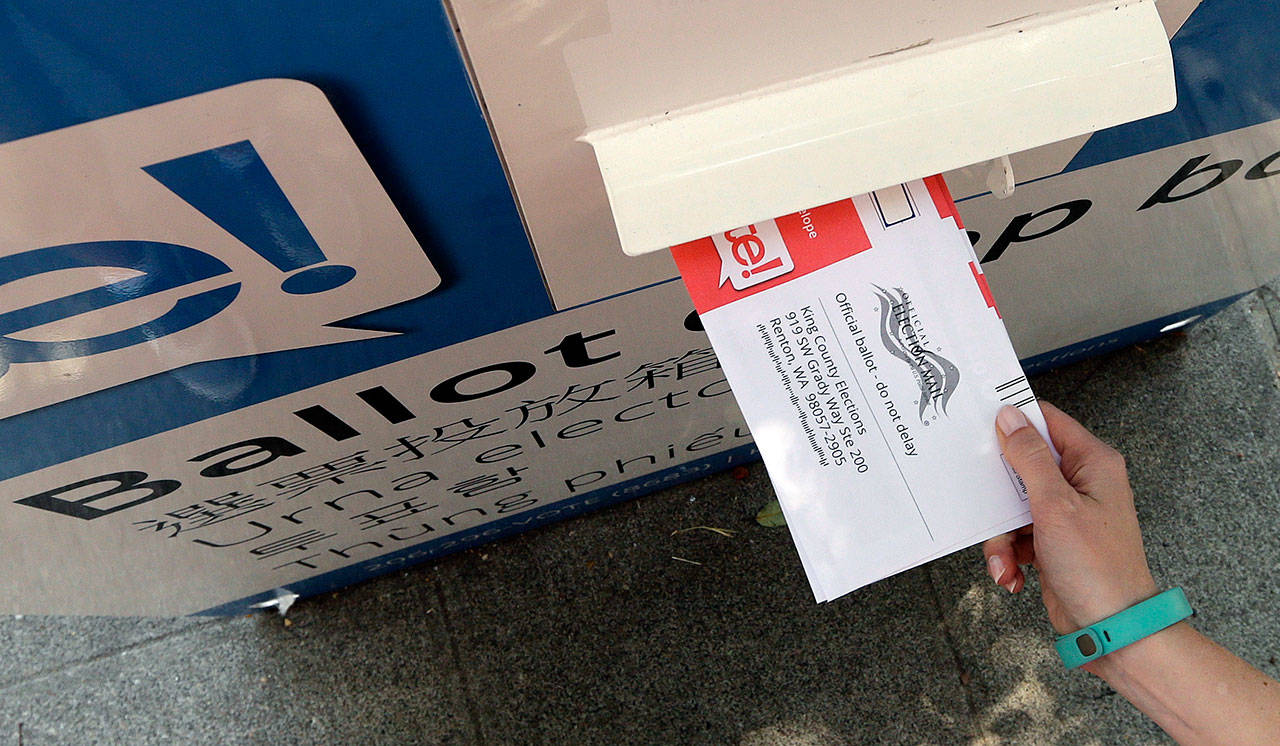By The Herald Editorial Board
The numbers aren’t there.
Those who are convinced that widespread voter fraud is affecting the outcome of elections — including the unsubstantiated claim by President Trump that between 3 million and 5 million people voted illegally in last year’s presidential election, costing him the popular vote — will frequently point to anecdotes and hearsay to support their claims.
But they can’t come up with the verified statistics to back those allegations.
Secretary of State Kim Wyman, the Republican who won her second term in November, announced Friday the results of a five-state review of the 2016 General Election that checked for instances of potential voter fraud, including people who voted in this state and another, those who voted twice in Washington state and those who voted using the registration of a deceased individual.
Of the more than 3.36 million votes cast in Washington state, the Secretary of State’s office found 74 cases of potential voter fraud. That information now is being turned over to the prosecutor’s offices in individual counties for further investigation and possible charges, which includes eight cases in Snohomish County.
Extrapolate President Trump’s claim of 3 million to 5 million illegal votes across all 50 states, and Washington state’s investigation should have turned up between 67,000 and 121,000 fraudulent votes. It found 74, or 0.002 percent of all votes cast. Not 2 percent, not two-tenths or two-hundredths, but two-thousandths of 1 percent.
The numbers were similar in the four other states participating with Washington in the review: Oregon, Colorado, Maryland and Delaware. Oregon uncovered 54 questionable ballots among its 2 million cast. Colorado flagged 48 of its 2.9 million votes.
Wyman was blunt in her statement Friday about the figures: There is no widespread voter fraud in Washington state. She’s made similar statements in January and in July, when Wyman called the claim of rampant voter fraud “ludicrous on its face.”
Earlier this summer, Wyman along with the nation’s other secretaries of state were directed by the Presidential Advisory Commission on Election Integrity — called by Trump following his claim — to forward a data dump of voter information, including names, dates of birth, addresses, partial Social Security numbers, driver’s license numbers, voting histories and party affiliations.
While some secretaries of state were adamant that no data would be provided, Wyman said the commission, led by its vice chairman Kris Kobach — Kansas’ secretary of state — was welcome to information that was a matter of public record, and pointed it toward the online link with the available data. But Wyman also was clear that no private information could or would be shared.
The ham-fisted request for voters’ personal information is one of a number of missteps by the commission, which held only its second meeting last week, just prior to the release of the five-state review. Among the stumbles, Kobach alleged that out-of-state voters had illegally voted in New Hampshire and had affected the result of a U.S. Senate race there, citing thousands of out-of-state driver’s license used for voter registration. But New Hampshire law makes allowances for some living out of state to cast ballots, namely college students.
Kobach, as a secretary of state could review his own state’s record to get a sense for the actual scope of voter fraud. His office has reportedly launched hundreds of investigations that have resulted in less than a dozen convictions.
Such forced efforts to show a real problem with voter fraud only substantiate well-aired suspicions that the purpose of the presidential commission is less about voter integrity and more about vote suppression. More than a few, including the Campaign Legal Center, a nonpartisan election law advocacy organization, suspect that once its work is complete, the commission will announce findings and policy at the state and national level that make it more difficult for economically disadvantaged and minority communities to register and to vote.
This isn’t to downplay the importance of assuring the accuracy of voter rolls and following up on instances of actual fraud.
Wyman, on Friday, said her office strives for a perfect balance between access and integrity.
“We want to make it as easy as possible for eligible citizens to register and vote, while at the same time protect our elections from fraud or abuse that could jeopardize the public’s faith in the system,” she said in a release. “That’s why our state and county elections departments go to such great lengths to verify individual voter information time and time again.”
When the voter integrity commission meets again, the results of the review by Washington and the other four states should be placed before its members, with the 0.002 percent figure highlighted.
Talk to us
> Give us your news tips.
> Send us a letter to the editor.
> More Herald contact information.

























